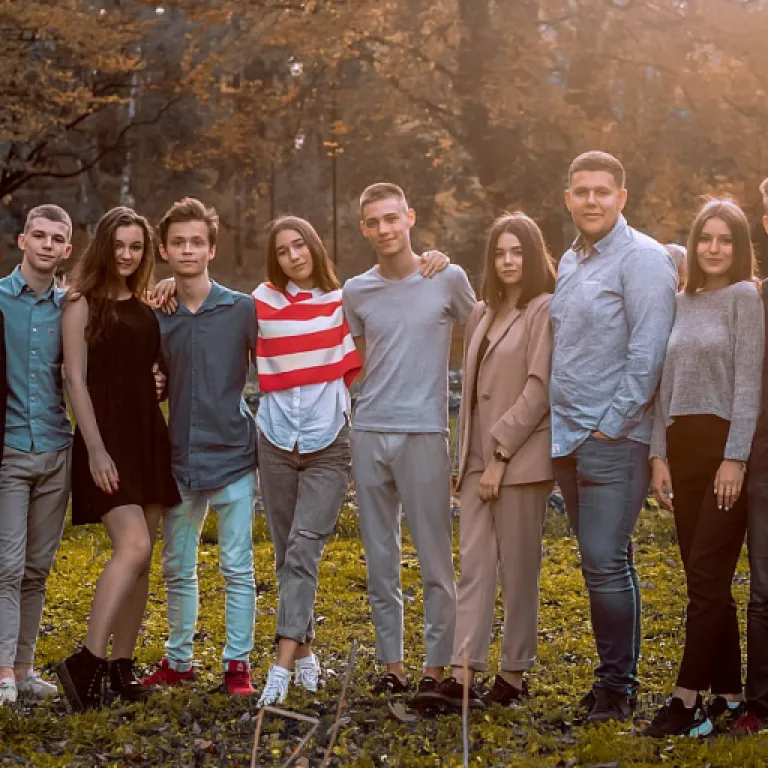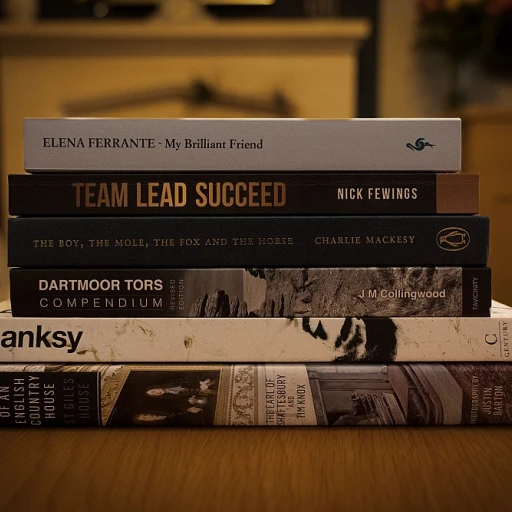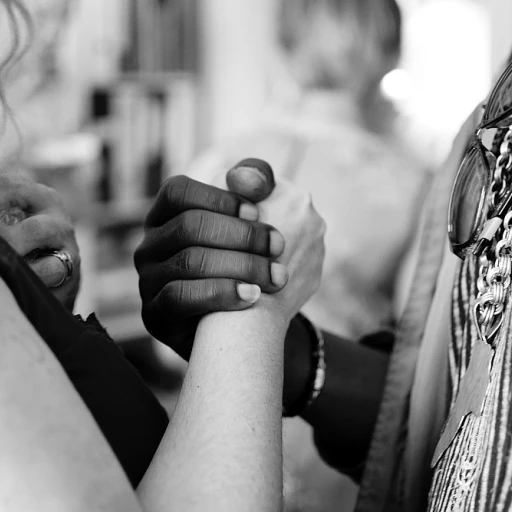
Understanding the Importance of Gratitude in Mentoring
Expressing Gratitude to Your Mentor
In the world of professional development, gratitude plays a vital role in nurturing successful mentoring relationships. A heartfelt thank you message not only fosters deeper connections but also affirms the value your mentor has added to your life and career. Expressing gratitude can be both a powerful and fulfilling way to acknowledge the time, effort, and guidance your mentor has provided. Mentors offer a unique blend of support and challenge, guiding you through complex career decisions. They help you navigate various aspects of professional life, transforming you into a better person with their insights and lessons learned. Taking a moment to express gratitude is essential, as it reinforces the mentoring relationship, highlighting the impact your mentor's support and guidance have had on you. When crafting a thank you letter or message, the aim is to convey true appreciation. This not only shows the mentor that their efforts are recognized but also strengthens the bond between you. With this powerful message, you acknowledge their role in your professional growth and the specific advice and instances where their guidance made a difference. Understanding the roles of mentors within organizations further emphasizes why it's important to express gratitude. They often go above and beyond their formal duties, helping mentees to thrive in their careers. For more insights into the significance of mentorship roles and their impact, consider exploring resources such as Understanding the Roles: Human Resources vs. Talent Advisor. This understanding can deepen your appreciation and help convey sincere thanks through your letter. In summary, expressing gratitude is not merely an act of courtesy; it is an essential component that can pave the way for a rewarding mentoring journey. A well-crafted thank you letter ensures that your mentor understands the profound impact of their guidance and support in your professional life.Key Elements of an Effective Thank You Letter
Crafting a Meaningful Message
To effectively express gratitude to your mentor, it is key to craft a well-structured thank you letter that conveys genuine appreciation. A good thank you letter starts with a heartfelt message that acknowledges the time and effort your mentor has dedicated to your career and personal growth. Recognizing these aspects lays the foundation for a lasting mentoring relationship. A crucial element of a thank you letter is specificity. Mention specific moments or pieces of advice that have had a significant impact on your life or career. For instance, if your mentor’s guidance helped you navigate a challenging transition or make a pivotal career choice, be sure to express how this support influenced you and why you are grateful. This not only personalizes your message but also reassures your mentor of the value of their mentorship. Moreover, it is important to articulate how the mentor’s guidance has contributed to your development as a better person or professional. Reflect on the lessons learned and express how these have shaped your path or inspired you to reach for new goals. Showcasing such outcomes is a powerful way to convey the depth of your appreciation. To help frame your thoughts, consider browsing insightful resources like navigating leadership dynamics which could offer guidance on how to convey your appreciation effectively. Ultimately, the aim of your thank you letter is to not only acknowledge your mentor's support and guidance but also to express gratitude in a way that feels sincere and impactful. By focusing on these key elements, your thank message will resonate deeply with your mentor, reflecting the meaningful connection forged through your shared journey.Common Mistakes to Avoid
Missteps to Sidestep When Saying Thanks
Expressing gratitude to your mentor through a thank you letter is a vital gesture in acknowledging the support and guidance they have provided. However, ensuring that your message resonates the way you intend requires attention to detail. Here's a closer look at common errors to avoid:- Vagueness in Expression: While crafting your thank you letter, emphasize the importance of being specific. Mention specific instances where your mentor's guidance and support positively impacted your life or career. Avoid generalities and, instead, focus on how particular lessons learned have made you a better person.
- Overly Formal or Stiff Language: It's crucial to strike a balance between professionalism and warmth. Your message should be heartfelt and reflect genuine appreciation. Avoid language that feels rigid or insincere, as your goal is to convey authentic gratitude.
- Omitting Personal Impact: Highlight the mentor’s role in your growth. Share how their mentorship has inspired and motivated you. Discuss examples of advice and guidance that helped you navigate challenges.
- Neglecting to Personalize: Avoid sending a one-size-fits-all thank you letter. Personalize your message by reflecting on shared experiences and acknowledging their unique contributions to your journey.
- Ignoring Timing and Consistency: Timeliness is crucial when expressing appreciation. Ensure your thank you letter reaches your mentor soon after a significant milestone or event. Delayed messages can feel insincere. Additionally, maintaining consistency in expressing gratitude reinforces the bond in your mentoring relationship.
Examples of Thank You Letters
Crafting Personal and Impactful Thank You Letters
When writing thank you letters to a mentor, it is important to go beyond generic messages and ensure your appreciation is personal and impactful. A heartfelt letter should convey your gratitude and highlight the specific ways your mentor's guidance has influenced your professional journey and personal growth.- Be Specific and Sincere: Mention specific instances where your mentor's support and guidance made a difference. Whether it was a challenging moment in your career or advice that helped you become a better person, these details will show how much you appreciate their time and effort.
- Express Genuine Gratitude: Let your mentor know how grateful you are for the lessons learned under their mentorship. Use words that genuinely express your appreciation for the time they invested in your career development.
- Focus on Impact on Life: Describe the impact their guidance has had on your life. Whether it has helped you overcome obstacles, achieve a career milestone, or understand your potential, share your personal journey and the difference they've made in your professional and personal life.
- Acknowledge Mentorship Contributions: Recognize their contributions to your growth. Reflect on specific advice or mentoring techniques that have stayed with you, reinforcing the bond of the mentoring relationship.
The Impact of a Thank You Letter on Your Career
Appreciating the Ripple Effects of Gratitude in Your Professional Journey
Expressing gratitude to your mentor can have profound effects on your career. When you take the time to write a heartfelt message of thanks, it not only demonstrates your appreciation for the guidance and support received but also solidifies the bond of your mentoring relationship. Taking the time to mention specific instances where your mentor’s advice and support made a difference in your life can leave a lasting impression. This act of appreciation shows that you value their time and effort, reinforcing the importance of their role in your professional growth. Furthermore, expressing gratitude through a thank you letter can also positively impact your self-perception. By recognizing the lessons learned and acknowledging the personal and professional improvements made with the help of your mentor's guidance, you effectively highlight your commitment to becoming a better person. As illustrated in the examples from previous sections, a thank you message doesn’t just reflect on your past experiences but also signals continued respect and readiness to embrace future guidance. This could open doors for new opportunities and collaborations, and keep the mentoring relationship thriving. Such messages foster an environment of mutual respect and trust, which is crucial for any sustainable mentorship. In summary, taking the initiative to express gratitude can greatly enhance your career prospects. Embrace this practice not only as a formality but as a vital component of your professional journey.Tips for Maintaining a Long-term Mentoring Relationship
Fostering a Lasting Mentoring Connection
After expressing gratitude to your mentor through a heartfelt thank you letter, maintaining that invaluable mentoring relationship is crucial for your continued growth. Acknowledging their guidance, mentorship, and specific advice enhances the bond you share, but it takes ongoing effort to nurture this connection.
Here are some practical tips for sustaining a long-term mentorship:
- Regular Communication: Keep the lines of communication open with regular meetings or messages. This not only shows appreciation for their time but also allows you to seek further guidance on upcoming career decisions or life challenges.
- Express Continuous Gratitude: Beyond your initial thank you letter, find ways to express gratitude regularly. This could be through periodic messages that recognize how their advice impacts your career and personal growth. Expressing gratitude can be as simple as a timely thank you or a spontaneous message after a significant career milestone.
- Share Updates: Mentors appreciate being informed about your progress. Sharing specific examples, achievements, or lessons learned not only shows that you value their input but also enhances their understanding of your journey. Mention specific instances where their support and guidance played a crucial role.
- Seek Feedback: A thriving mentoring relationship thrives on mutual beneficial dialogue. Ask for feedback on your work and ideas. This not only helps you grow as a professional but also underscores your respect for their perspective and insights.
- Offer Assistance: Mentoring is not a one-way street. Although you may feel like you're primarily on the receiving end, expressing gratitude doesn't just stop with words. Offer your help where applicable. Whether it’s volunteering your time or supporting them on a project, being there in their moment of need shows appreciation mentor.
Sustaining a mentoring relationship isn't just about saying thank you or following up with messages; it’s about building a reciprocal, respectful connection that is mutually enriching. In time, your mentor will become not just a guide but a trusted ally in your professional journey, helping you evolve into a better person.













